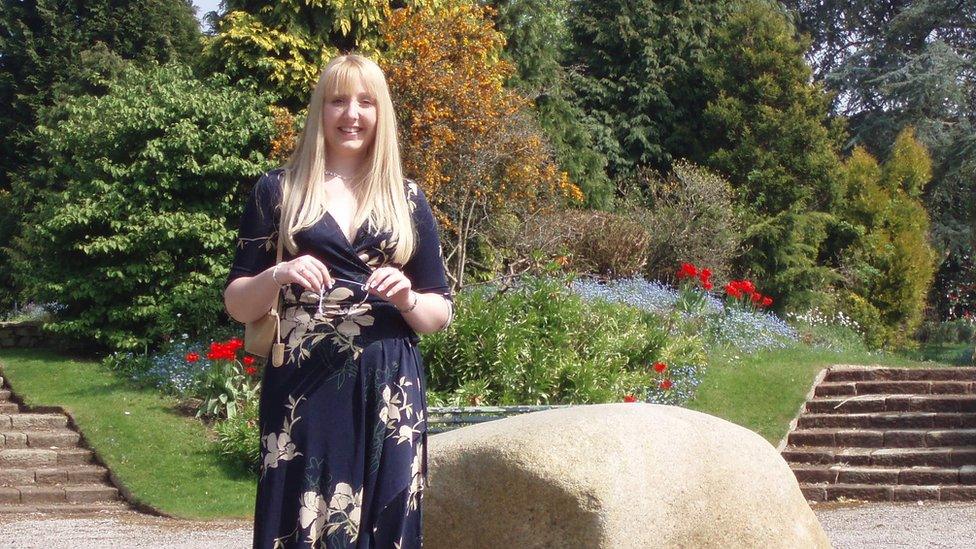Ovarian cancer victim may have survived with correct operation
- Published

Catherine Jones died three years after being told she did not need a follow-up
A woman who died with ovarian cancer may have survived if the correct operation had been carried out, an inquest has heard.
Catherine Jones, a nurse at Wrexham Maelor hospital, had a cyst removed there, but her ovary and fallopian tube should have been removed.
After the operation in 2013, Ms Jones from Hawarden in Flintshire was told there was no need for a follow-up.
But Ms Jones did have cancer, which then progressed unchecked.
She fell ill in 2016 and was referred for an urgent hysterectomy after which cancer in her right ovary was discovered.
Ms Jones was given the all clear following that operation and told she did not need further treatment, but died from cancer four months later.
Giving evidence at the hearing, her gynaecological oncologist, Philip Toon - now retired - said he had compared scans of a cyst on Ms Jones' ovaries taken in 2011 and 2012.
He told the court he did not think there had been any significant growth of the cyst and her cancer markers were low, but there was increased blood flow to the right ovary which made him "suspicious".
As a result he put Ms Jones on the list for surgery and made notes on the scan that an oophorecctomy, the removal of the ovary and its fallopian tube, should be carried out.
But the procedure she actually had, undertaken by another clinician, was the removal of the cyst.
A previous biopsy of the removed cyst also wrongly showed there was no evidence of malignancy.
Mr Toon was asked by the lawyer representing Ms Jones' family, Louis Browne KC, if a note on a scan is sufficient, or if the instruction should have appeared elsewhere in the records.
"My expectation is that procedure would be carried out," he said, before agreeing with Mr Browne's assertion that "something had broken in the chain of communication" which had had a "catastrophic" outcome.
A 'catalogue of errors'
He was then asked if Ms Jones might not have died had the procedure he wanted been carried out, to which he said: "Possibly, yes."
Mr Browne KC said that in summary, there had been a "catalogue of errors" over a three-year period that led to Ms Jones' death.
At a previous inquest hearing in the case senior coroner John Gittins said Betsi Cadwaladr University Health Board (BCUHB) had already made "a full and frank acceptance" that a mistake was made in Mrs Jones' case.
The inquest continues.
Related topics
- Published4 December 2023

- Published29 November 2023
